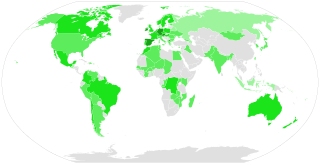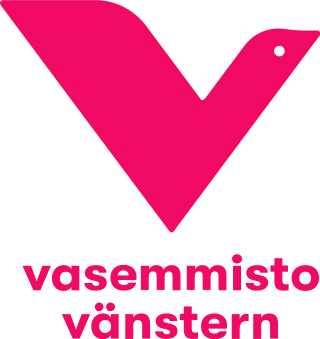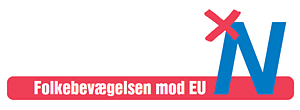The Left in the European Parliament – GUE/NGL is a left-wing political group of the European Parliament established in 1995. Prior to January 2021 it was named the European United Left/Nordic Green Left.

The Democratic Left Alliance was a social-democratic political party in Poland. It was formed on 9 July 1991 as an electoral alliance of centre-left parties, and became a single party on 15 April 1999. It was the major coalition party in Poland between 1993 and 1997, and between 2001 and 2005, with four Prime ministers coming from the party: Józef Oleksy, Włodzimierz Cimoszewicz, Leszek Miller and Marek Belka. It then faded into opposition, overshadowed by the rise of Civic Platform and Law and Justice.
In politics, a red–green alliance or red–green coalition is an alliance of "red" parties with "green" parties. The alliance is often based on common left political views, especially a shared distrust of corporate or capitalist institutions. While the "red" social-democratic parties tend to focus on the effects of capitalism on the working class, the "green" environmentalist parties tend to focus on the environmental effects of capitalism.

A green party is a formally organized political party based on the principles of green politics, such as environmentalism and social justice.
The Democratic Party, abbreviated to PD, was a minor social-liberal political party in Poland. It had no members of the Sejm, Senate, or European Parliament.

The Left Alliance is a socialist political party in Finland.

The Green Left is a democratic socialist political party in Denmark.

The Coalition of the Left, of Movements and Ecology, commonly known as Synaspismos and abbreviated to SYN (ΣΥΝ), was a Greek political party of the radical New Left. It was founded in 1991 and was known as the Coalition of the Left and Progress until 2003. In 2004 SYN was a founding member of the Party of the European Left.
The Red–Green Alliance or Unity List is an eco-socialist political party in Denmark. It was founded in 1989 with the merger of three Marxist parties and it is the most left-wing party in the Folketing, where it advocates for the expansion of the welfare state and social justice as well as the socialist transformation of Denmark and the entire globe. During the 2021 Copenhagen City Council election the party placed first, with 24.6% of the votes. The party is also active in various trade unions within Denmark.

The People's Movement against the EU is a far-left political association in Denmark against the European Union. It was founded in 1972 as a cross-party campaign platform for a 'no' vote in Denmark's referendum on EEC membership. The People's Movement was represented in the European Parliament from 1979 until 2019, when it lost its single seat in the European Parliament election.

The Communist Party of Denmark is a communist party in Denmark. The DKP was founded on 9 November 1919 as the Left-Socialist Party of Denmark, through a merger of the Socialist Youth League and Socialist Labour Party of Denmark, both of which had broken away from the Social Democrats in March 1918. The party adopted its present name in November 1920, when it joined the Comintern.

The Political Party of Radicals was a Christian-radical and green political party in the Netherlands. The PPR played a relatively small role in Dutch politics and merged with other left-wing parties to form GroenLinks in 1991.

Line Barfod is a lawyer and politician in Denmark. She is a former member of the Folketing for the Red-Green Alliance.
The Gauche Plurielle was a left-wing coalition in France, composed of the Socialist Party, the French Communist Party, the Greens, the Left Radical Party, and the Citizens' Movement. Succeeding Alain Juppé's conservative government, the Plural Left governed France from 1997 to 2002. It was another case of cohabitation between rival parties at the head of the state and of the government. Following the failure of the left in the 2002 legislative election, it was replaced by another conservative government, this time headed by Jean-Pierre Raffarin.
This article gives an overview of socialism in the Netherlands, including communism and social democracy. It is limited to communist, socialist, social democratic, and democratic socialist parties with substantial support, mainly proved by having had a representation in parliament. The sign ⇒ means a reference to another party in that scheme.
The Red Party is a socialist political party in Norway. It was founded in March 2007 by a merger of the Red Electoral Alliance and the Workers' Communist Party. A Marxist party, it has been described as left-wing and far-left on the political spectrum. In its political programme, the Red Party sets the creation of a classless society to be its ultimate goal, which the party says is "what Karl Marx called communism". The party's other goals are replacing capitalism with socialism, an expansive public sector and nationalisation of large enterprises. It strongly opposes Norway becoming a member of the European Union.

The politics of Denmark take place within the framework of a parliamentary representative democracy, a constitutional monarchy and a decentralised unitary state in which the monarch of Denmark, King Frederik X, is the head of state. Denmark is a nation state. Danish politics and governance are characterized by a common striving for broad consensus on important issues, within both the political community and society as a whole.
Preben Møller Hansen was a Danish politician, trade unionist, writer and cook. As chairman of Sømændenes Forbund, he earned the nickname Sømandsbossen in Denmark and was well-known for his populist manners, including frequent swearing and anti-elitist remarks.

The 2019 European Parliament election in Denmark was held on 26 May 2019, and elected the Danish members to the European Parliament. The elections are part of the EU-wide elections for the parliament. Denmark had 13 seats in parliament, which increased by one additional seat following Brexit.














